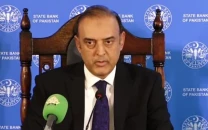Talking business
It’s the time of year to take stock of things. What were the economic highlights of the year 2010?

For me, the defining theme of the outgoing year was the unravelling of the massive stabilisation effort launched in 2008. The unravelling did not happen in one go, nor is it over yet. Two major trends marked the process.
The first one was the growing budget deficit and its corollary symptoms: government borrowing, inflation and weakening of the government’s political position.
The first hint of bad things happening on the fiscal front came during the months of March and April. Revenue targets were not being met, circular debt was rising fast and external inflows had come to a standstill.
The next landmark was the Budget, or more precisely: the Economic Survey, when the economic picture was tweaked to show better performance this year, an act that did not fool many people.
A budget with wildly optimistic revenue and foreign inflow assumptions followed on the heels of this announcement, prompting a visit by a stern and sceptical International Monetary Fund (IMF) team that wanted to ask a few questions about these assumptions. Even today the country’s creditors, represented by the IMF, speak of modifying the pre-flood budget targets.
To those who followed these events as they unfolded, who remember the IMF’s visit in July when the budget numbers were sceptically examined, who recall the prime minister’s visit to Q Block where he was given a grim overview of the economic situation, who remember the first Pakistan Investment Bond (PIB) auction that had to be scrapped altogether as the markets demanded a premium for going long with government paper, who saw the rising premiums on any tenure longer than three months on treasury bills, to somebody who had an ear to the ground as the fiscal realities melted all around the government in July and August, the floods are clearly not the cause behind the government’s difficulties.
The second trend that marked the process of unravelling of the stabilisation effort was the running aground of tax reform. The value added tax bill languished in parliament as a new finance team busied itself with the formalities of assuming power in April and May.
Despite every indication that it would be difficult to get the provinces on board an integrated tax on services, the government showed lethargy and weak ownership of the initiative for too long.
Throughout July the advisers met and discussed, and word had it that they had agreed on a format for levying the tax on services, but higher-level ownership of the reform effort was nowhere to be seen. As we moved through the floods, past the creation of a ‘revised budgetary framework’ – euphemism for eating fiscal crow – the tax reform effort continued to languish. A deadline was set in the budget announced in June and blown readily by October with the excuse that the floods had changed everything. No they hadn’t. The fiscal numbers were pure fiction long before the floods, but the tax reform effort was allowed to run aground on the fiction.
With time the creditors grew impatient and demanded faster action, less lethargy. As the opposition parties saw that the government is being prodded to advance tax reform, they took advantage of the opportunity and began loudly opposing it.
Today the fiscal deficit is projected to be beyond seven per cent of the gross domestic product (GDP) by close of the year, but nobody can say anymore where it will land since all the assumptions upon which the projections have been built have been destroyed.
Without the reformed general sales tax (RGST), without an auction for 3G mobile licences, with continuously rising circular debt, with oil prices resuming their climb and inflation galloping along, there is no telling where the fiscal deficit is going to land by June.
And that is the defining theme of the year 2010. At the core of the stabilisation effort launched in November 2008 was the attempt to bring fiscal deficit back under control. For a brief while the government appeared to be successful but then in 2010 the effort fell apart and the future is now uncertain regarding reserves and inflation. 2011 promises to be a difficult year.
The writer is Editor Business and Economic policy for Express News and Express 24/7
Published in The Express Tribune, December 27th, 2010.



















COMMENTS
Comments are moderated and generally will be posted if they are on-topic and not abusive.
For more information, please see our Comments FAQ